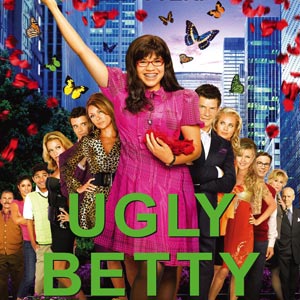Perfect Sunday…and now for something completely different
Part of the fun of being a blogger is knowing other like-minded souls, like my favorite sister-in-law Blanche. And silly blogger games like “tag.” So, I am writing this in honour of youthful days of yore. (BTW, check out the end of the post for some menopause-related questions.)
Blanche -this one’s for you.
And for you, dear readers who don’t know me personally, here’s a bit of insight into Flashfree.
Instructions:
A) Answer the questions below, do a Google Image search with your answer, take a picture from the first page of results, and do it with minimal words of explanation.
B) Tag 5 other people to do the same once you’ve finished answering every question.
The age you will be on your next birthday
Your favorite place that you want to travel to (I’m interpreting this as my favorite place)

Your favorite Food

Your favorite pet
Your favorite colour combination

Your favorite piece of clothing

First name of your significant other
NA at the moment.
The Town in Which you Live

Bad Habit

Worst Fear

What you’d like to do before you die

I’m breaking the rules. Because I always do. So, I’m only tagging Amy.
This exercise, albeit a bit silly, got me thinking. What are the big questions that would spark some change in ourselves?
1) Thing that disappoints me?
2) Thing that most feeds my soul?
3) One person in the world I know that I can always depend on?
4) One thing I’d do the change the world?
5) Thing that challenges me the most?
Read MoreLadies of the world, flashers, sweat-ers, mood swingers…
Lend me your ears….you have your own DAY! In the U.S. we give you a month. But the world gives you a day!
If you don’t know what I’m yammering on about, yesterday was World Menopause Day. I posted this rant over at BitchBuzz after Editor Cate Sevilla sent me a link to a press release announcing that Waterstone Books was carrying the Hot Flush Diary.
Last month was National Menopause Month in the U.S. Now, the ‘world of women in menopause’ actually has a day. I swear if it weren’t abundantly clear that the initiative was likely being driven by national medicine societies and pharmaceutical companies, I’d suspect that Hallmark and PaperHouse had conspired to sell more cards.
Here’s the challenge issued by the International Menopause Society (IMS):
“The World Menopause Day challenge therefore calls on every woman age 45 and older to return to her physician and speak about her individual health history, her risks for diseases, the benefits and risks of available treatments for disease prevention, and steps she can take now to take charge of her health.”
President Hermann Schneider of the IMS also says:
“Due to the recent publications on the risks of long-term use of hormone therapy, many women suffering from menopausal complaints have either dropped out of therapy or haven’t started therapy at all.”
Okay. I truly believe that it’s a great idea to take charge of one’s health and examine some of the natural changes that occur, not only with menopause, but also with aging. But by lumping them all together in a single pot, well, I cry “foul.”
Did you know that many diseases that the medical community has long associated with menopause are, in fact, due to the aging process? You may recall that I recently wrote about a new study published in the Journal of Hypertension clearly demonstrates that differences in heart disease risk between pre- and post-menopausal women with similar risk profiles existed only when age, NOT ESTROGEN LEVELS, were accounted for. This may be why hormone replacement therapy (HRT) has not been proven to prevent heart disease.
So, until they sort some of these bits out, do we really want to fault women for refusing hormone replacement? Moreover, how many women wish to make a pact with the devil to further the medicalization of menopause? Not I!
Here’s what I propose:
- To the IMS and other medical societies – stop medicalizing what is a natural transition in our mid-lives. Hey, here’s a nifty idea: why not review your data, read alternative medicine peer-reviewed journals and educate yourselves about effective alternative therapies for your patients who have been scared off by the negative findings surrounding HRT and antidepressants and other pharmaceuticals? What’s more, what if you made a greater effort to embrace multidisciplinary collaboration and invite educated and credentialed alternative practitioners into your fold, practitioners who might be able to offer you and your patients important solutions when Western ways fail or are simply, impractical?
- To the World Health Organization – please stop telling us to celebrate the menopause. Trust me – when women are flashing in the middle of a meeting, sweat pouring down their faces as their colleagues look on, or are sleeping on soaking wet sheets because of night sweats, well, they don’t really feel like having a cocktail and a “WOOT,” ain’t life grand”-sort of celebration. Maybe, instead, think about devoting some of that hard research cash toward studies that focus first on women and last on profit.
- To leading women’s health expert and Council Member of the British Menopause Society, Mr. Nick Panay, a Hot Flush Diary is the last thing I want to keep on my nightstand. In fact, the idea of taking notes on all of my hot flashes and night sweats and when/why/how they occur and how they make feel gets me pretty hot under the collar. Tell you what: the next time you have to pee for the zillionth time in the middle of the night, turn on the light and write in your BPH journal how you feel. I would guess that that’s not going to happen, right?
Want to “make this hot woman cool?” Stop making me feel as though menopause is a disease and not a natural transition that all women go through. Stop telling me that I should embrace this part of my life without fighting it every step of the way. And please, stop treating my body as if it’s disconnected from my mind.
Read More
Hope springs eternal: black cohosh
There may be good news on the horizon for perimenopausal women with hormone receptor-positive breast cancer. Researchers from the University of Missouri-Columbia are conducting an animal study to see how black cohosh and the tamoxifen interact.
Unfortunately, breast cancer patients who take tamoxifen to prevent their cancer from recurring, are unable to take hormones for menopausal symptoms that often occur as the drug starts working to shut down estrogen production. Consequently, one of the only options available to them are antidepressants, which are not always effective and depending on the agent, may cause side effects such as weight gain, fatigue or reduced sexual desire.
It’s a hopeful path that may help alleviate undesired side effects in women with breast cancer. If you’re interesting in reading more about black cohosh, you can click on the word in the tags category on the sidebar.
Read MoreIrritable Male Syndrome

[Marianna Schmidt, Angry Man, 1986]
We now interrupt our regularly scheduled program to….
Turns out that your angry male partner/friend/husband is not in male menopause afterall. At least according to psychotherapist Jed Diamond, whose book, ‘Male Menopause’ caused quite a stir when it was first published in 1998.
So, is your guy suffering from IMS?
IMS is a term used to describe a state in which men of any age become hypersensitive and angry, theoretically as a result of biochemical changes, hormone fluctuations (namely testosterone), stress, and sense of loss of male identity. With regards to hormone fluctuations specifically, Dr. Diamond explains in an interview featured on WebMD, that:
- testosterone levels can increase and decrease as many as five times an hour
- testosterone levels are higher in the morning and lower at night
- men have monthly cycles that vary from man to man but are trackable using mood changes as a guide
- between the ages of 40 and 55, men go through male andropause syndrome, with declining androgen levels that affect sexual desire, function and overall quality of health. Notably, some research suggests that this is debatable).
IMS evidently rears its head as depression or worse, anger, hostility and violence directed towards another person. And Dr. Diamond says that until men overcome their denial and attributing their feelings to outside causes, they can’t overcome the problem.
I did a quick search on PubMed to see if any of Dr. Diamond’s research has been published. I didn’t find anything. However, I did stumble across his website, where he encourages guys to take a quiz to determine if they’re suffering from IMS, and women, to sign up for an interactive program called “AliveGuide.”
IMS…is it real? Or simply another way to sell books? What’s more, what can your guy do about it? Dr. Diamond recommends recognition and communication, among other self-help steps.
What do you think? Men – are you suffering from IMS or know someone who is? What steps are you taking to help yourself? Women – does your guy/friend/partner have IMS?
I’d love to hear more!
Read MoreWednesday Bubble: Blue
[youtube=http://www.youtube.com/watch?v=_LhwlsaA-Vc]
Mid-life depression is a real issue. But are your blue feelings due to depression or to menopause? That is, is depressed mood in middle aged women a result of aging and some of the emotional or pyschological factors that accompanies it, or due to hormonal changes during the transition?
Experts still are not certain of the association and to date, research has demonstrated contradictory results, with some studies showing a correlation between depression and menopause and others, none. Other studies suggest mood declines during early stages of menopause followed by improvements as vasomotor and other symptoms start to wane.
However, what the data do appear to show is that there are several time periods in a woman’s life in which she is more vulnerable to depressive symptoms, e.g., pre-menstruation, postpartum and of course, during the menopausal transition. What’s more, data from the Melbourne Women’s Mid-Life suggest that a prior history of depression and having negative feelings about menopause can increase risk. Additionally, menopausal-onset depression and the start of vasomotor symptoms during the early stages of menopause appear to be linked.
Personally, I believe that drastic changes in one’s body, in moods and appearance, as well as some serious self-exploration and self-analysis, also play a role.
So, what can you do when you feel blue?
Transdermal estrogen delivered via a patch that is applied to the skin appears to even out estrogen fluctuations that may affect mood during the menopause. For women for whom estrogen is not an option and who are not interested in trying antidepressants, (whose effects, btw, may vary depending on age), St. John’s Wort (hypericum) extract may be a viable and effective option. A recent analysis of 29 studies enrolling almost 5,500 patients showed that St. John’s Wort extract:
- is superior to placebo tablets in patients with major depression
- is as effective as standard antidepressants
- has fewer side effects than standard antidepressants
So, how should you take St. John’s Wort? Well, like any herb, it’s best to consult with a practitioner well-versed in herbal therapy rather than reaching for a bottle in your local drugstore. Many therapists are also joining the band wagon and may be able to provide advice.
In earlier posts, I wrote how exercise can help to improve mood symptoms. And ironically, a glass of red wine daily also has been shown to improve mood and quality of life, although if you’re taking medications for depression, alcohol is counterintuitive.
So, tell me? Are you feeling blue on a more regular basis? What seems to help (or not help)?
Read More








